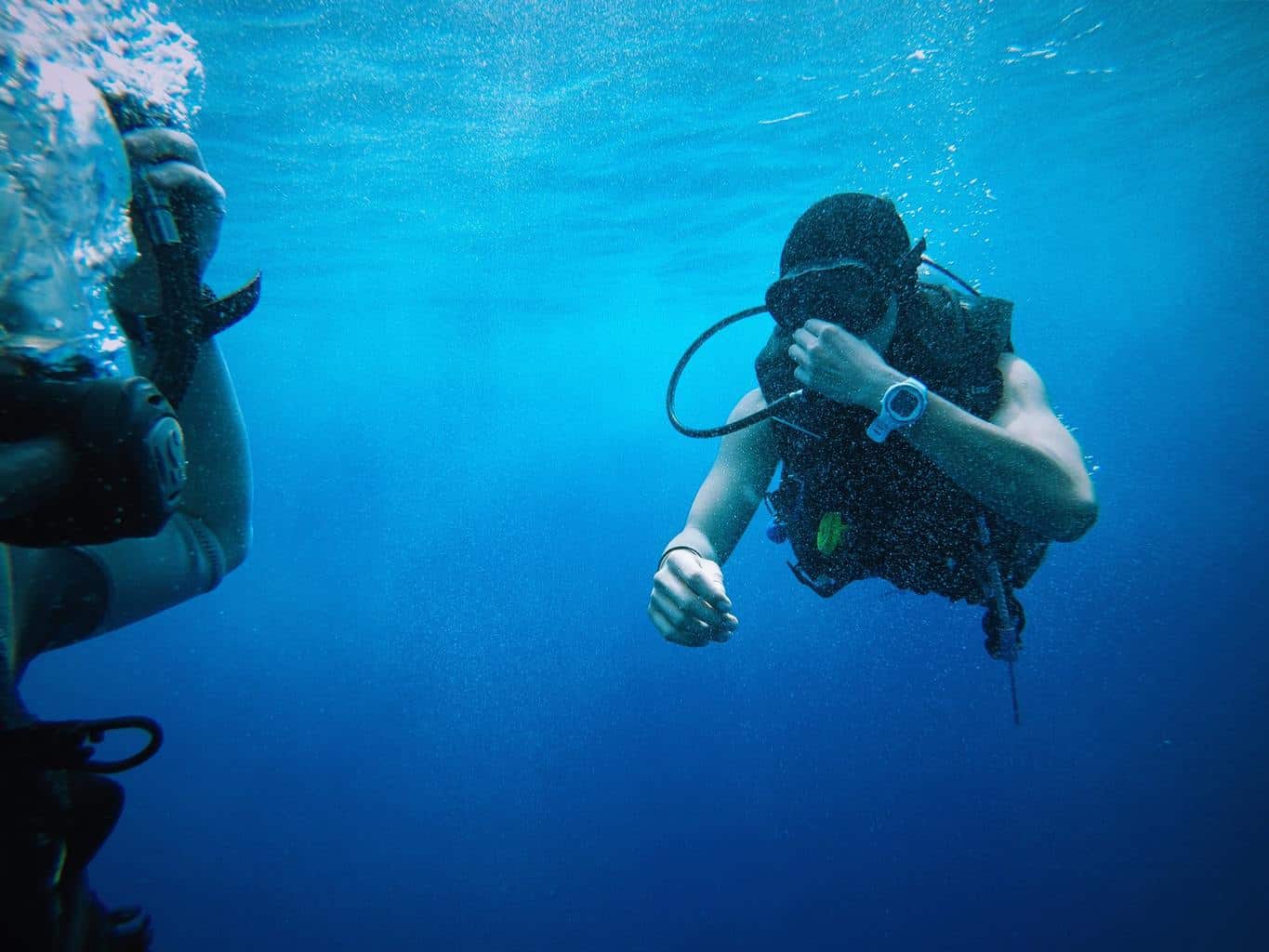Spending time underwater is definitely not being in our natural environment, so if you’ve never tried it before, it’s pretty normal to wonder what scuba diving will actually feel like.
Whether it’s the breathing from the regulator with its bubbles, wearing the scuba equipment, or moving around in all directions, there’s a lot in scuba diving to discover the feel for.
This article will show that scuba diving feels like no other activity.
While it might take time to get comfortable initially and a bit of practice, scuba diving can give a feeling of freedom and discovery that’s tough to beat.
- How Does Scuba Diving Make You Feel?
- Is Scuba Diving Like Being in Space?
- What Does It Feel Like to Go Scuba Diving for the First Time?
- What Does It Feel Like to Wear Scuba Gear?
- Can Scuba Diving Feel Weird or Uncomfortable?
- Can I Get the Feeling of “Not Enough Air”?
- How Do You Feel After Scuba Diving?
- What Does Equalizing Feel Like?
- Does Scuba Diving in a Tropical Location Feel Different Than Elsewhere?
- Conclusion
- You Might Also Like…
Disclosure: this post contains affiliate links (clearly marked with ), which means we may earn a commission if you buy something through them, at no additional cost to you.
How Does Scuba Diving Make You Feel?
Once you’ve got over the first hurdles of learning to dive and have a little experience, how does scuba diving make you feel?
For a lot of people, the essential feeling is “relaxed”.
Scuba diving takes them away from the stresses of everyday life, away from their phones and the internet, and into an underwater world full of discovery and peace.
While scuba diving is often called an extreme sport, even when it’s exciting with currents to master and perhaps exciting wildlife encounters, it still tends to be a relaxing pastime, especially as diver experience grows.
As soon as they leave the surface and descend, the diver becomes overcome with relaxation and contentment.
Indeed, a scientific phenomenon known as the “diving reflex” can cause heart rate and blood pressure to lower as soon as the face is submerged underwater.
Divers will also often describe a feeling of freedom.
Movement underwater, once buoyancy control is mastered, is without our normal earthly limits.
Accomplished scuba divers can move in 360 degrees in all planes using their fins and buoyancy control.
Once learned, even to a basic degree, the buoyancy control technique of taking a deeper breath in to go up slightly and letting a full breath out to go down will feel natural, and divers might even try it unconsciously on land to get up out of their chair!
Is Scuba Diving Like Being in Space?
Scuba diving certainly shares a lot of similarities with being in space.
Divers and astronauts both have to have an air supply, wear an exposure suit to protect them from their environment, and experience movement that isn’t controlled by earth gravity.
So, yes, for most of us, scuba diving is the closest feeling that we can experience to actually being in space.
Indeed, scuba diving is so similar to being in space that NASA uses specialized facilities like the Neutral Buoyancy Laboratory and NEEMO research station for training astronauts on what it’s like to work in a zero-gravity environment and to test space equipment.
While space travel is out of reach, scuba diving can present a similar experience of weightlessness with the bonus of not involving years of training and millions of dollars.
What Does It Feel Like to Go Scuba Diving for the First Time?
When they go underwater for the first time, people often understandably find it a strange and maybe even disturbing feeling.
What might cause their concerns will differ from person to person, and these can often be reduced by preparing for your scuba diving course sensibly.
Assuming there are no underlying problems, most people react in a reasonably similar way and will work with the instructor through any worries.
When you learn to scuba dive, your instructor teaches you all the essential skills and theory required to dive safely, but there’s nothing like the experience the first time you get underwater.
You have all the equipment on, the mask in place over your eyes and nose, and the regulator blowing bubbles.
It can be quite tricky, to begin with, and you might feel awkward and nervous, but most divers quickly learn to relax and start to get used to being underwater.
Being underwater for the first time, most people are aware of how loud their bubbles and other sounds are.
The bubbles might tickle their faces as they exhale through the regulator, and in general, people are much more conscious of their breathing.
Some people feel a little claustrophobic, but generally, this passes very quickly as they relax.
Quite soon, first-time divers get used to the bubbles and noise and start to feel the resistance of the water to their movements as they get ready for their first attempts at swimming underwater.
What Does It Feel Like to Wear Scuba Gear?
A complete scuba unit with the tank, regulator, and BCD along with a weight belt can weigh about 25kg / 55 pounds, so it’s pretty heavy to walk around with on land.
One reason why scuba diving can be a good physical exercise is the workout before the dive carrying the gear.
But once you’re in the water, everything becomes much lighter.
As divers become more experienced at buoyancy control, they won’t feel the weight at all.
The Buoyancy Compensator Device (BCD) allows divers to achieve neutral buoyancy, and with practice, make quite delicate maneuvers in all directions.
Some BCD types are even known as “wings” as well-practiced users can really “fly” underwater.
Can Scuba Diving Feel Weird or Uncomfortable?
Almost everyone will find the feeling of being underwater the first – or first few – times weird.
After all, this isn’t our natural environment!
However, in general, this passes quite quickly as new divers learn to trust their equipment and what they’ve been taught.
For some divers, wearing the scuba mask can take some getting used to as it means that they can’t breathe through their nose.
Other divers will find the scuba regulator awkward, to begin with, as they get used to the mouthpiece and weight in their mouths.
It’s also very common to feel ungainly and clumsy underwater and that you’ll never be able to move around as your instructor can.
However, with patience and practice, these issues are overcome with your instructor’s help, and quite quickly, most people become comfortable and relaxed.
Divers concerned with how they might get on do well to take one of the available “introductory” courses that are commonly available.
These usually take a half or full day and are a great way to try scuba diving without a full course commitment.
Available introduction experiences include the following and are well worth looking at if you’re a bit nervous:
- “Discover Scuba” program by PADI
- “Basic Diver” by SSI
- “Try Scuba” by NAUI
Can I Get the Feeling of “Not Enough Air”?
The part of the scuba regulator that goes into your mouth to breathe from (the regulator second stage) features what is called a “demand valve.”
This means that it literally gives you air when you “demand” it by breathing in.
So once new divers get used to it, they usually find breathing through the regulator easier than a snorkel as the air is actually delivered to you.
In the early days of scuba diving, regulators used to get harder to breathe from the deeper the diver went.
However, modern “balanced” regulators are designed to be easy to breathe from, irrespective of the depth you’re at.
This is not to say that some people don’t get the feeling of “Not Enough Air.”
In the beginning, the stress and newness of being underwater can cause people to react differently.
If a diver does hyperventilate, just like on land, it can feel like they can’t get enough air.
In the beginning, all divers learn with an instructor in water that is shallow enough to stand up in and practice breathing slowly and deeply.
Any issues with breathing can usually be overcome by relaxing, listening to the instructor, and trusting the equipment and training.
Often having a go with the regulator slowly while standing in the pool with just their face in the water is sufficient to show most new divers that the regulator will keep giving them air so long as they stay relaxed.
How Do You Feel After Scuba Diving?
After diving, feelings will range but usually and hopefully will include pleasurable memories and thoughts about the dive that you want to talk about with your buddies now that you can!
While some divers will actually try and talk through their regulators underwater, this isn’t generally successful, leaving hand signals for communication.
So once they’re back on the boat or beach, usually there’s a lot of conversation about the dive.
Other people are quieter and more contemplative and like to think about their dive in their own peace.
Divers might feel a little tired as scuba diving is an exercise that can burn around 600 calories an hour.
Keen scuba divers will review and consider how well the dive went and if anything can be learned for the future.
Beginner divers will get a formal “debrief” from their instructor to discuss how the dive went.
After the dive, good scuba divers will log the dive to record the dive details and make a memory of what they saw and how they felt about the dive.
What Does Equalizing Feel Like?
If you’ve been on an airplane, then you know already what equalization feels like.
As you come in to land on an airplane, you’re going from a lower pressure environment to a higher pressure one, and you might feel some pressure in your ears or sinuses.
This is exactly the same as when you start to descend on a dive, although, of course, due to the higher pressure of the water, it happens a bit quicker.
If you don’t equalize, you’ll start to feel pressure in your ears and sinuses, which, if unmanaged, will turn into pain and even a pressure injury from descending too quickly or not equalizing early or often enough.
Just like on the airplane, you need to equalize your ears and airspaces when starting the dive and begin descending.
Many people will suck a sweet or chew gum on a plane during the descent to help them.
Unfortunately, you can’t do this while scuba diving!
Underwater, most beginners are taught to pinch their nose through the mask nose pocket and gently blow against it.
This pushes air into the air spaces to keep them equal to the surrounding water pressure.
Equalizing while scuba diving can take practice to find the right method that works for the individual.
It’s normal to feel a little pressure, but this should be managed before getting to any level of discomfort.
The important thing is never to force the equalization or to keep descending if you feel any pain.
Does Scuba Diving in a Tropical Location Feel Different Than Elsewhere?
Diving in tropical locations is definitely a luxury and can be “easier” than in colder waters.
When the water is above about 30°C / 86°F, most people find that wetsuits aren’t necessary.
This means that very little lead is needed to dive, which can reduce the weight of their scuba equipment by up to half compared to cold water diving, so movement on land is much more comfortable.
Underwater the reduced lead and lack of suit compression means that buoyancy control is easier.
Less air needs to be added to the BCD as there is significantly less buoyancy change to compensate for.
Typically, tropical waters also come with better visibility, so often beginners will feel more comfortable.
Needless to say, being able to sunbathe between dives is also quite enjoyable!
Conclusion
Scuba diving feels like nothing else you can do on earth.
Although it might take a little getting used to when you first start, with confidence and practice, you’ll discover an activity that can be relaxing, exhilarating, educational, and social all at the same time.
When the diving bug gets you, the feeling of freedom underwater is something you’ll want to experience again and again.
You Might Also Like…
-

How Do Scuba Divers Drink Water? 5 Possible Ways (+7 Tips)
-

How Long Can Scuba Divers Stay Underwater? (+9 Limiting Factors)
-
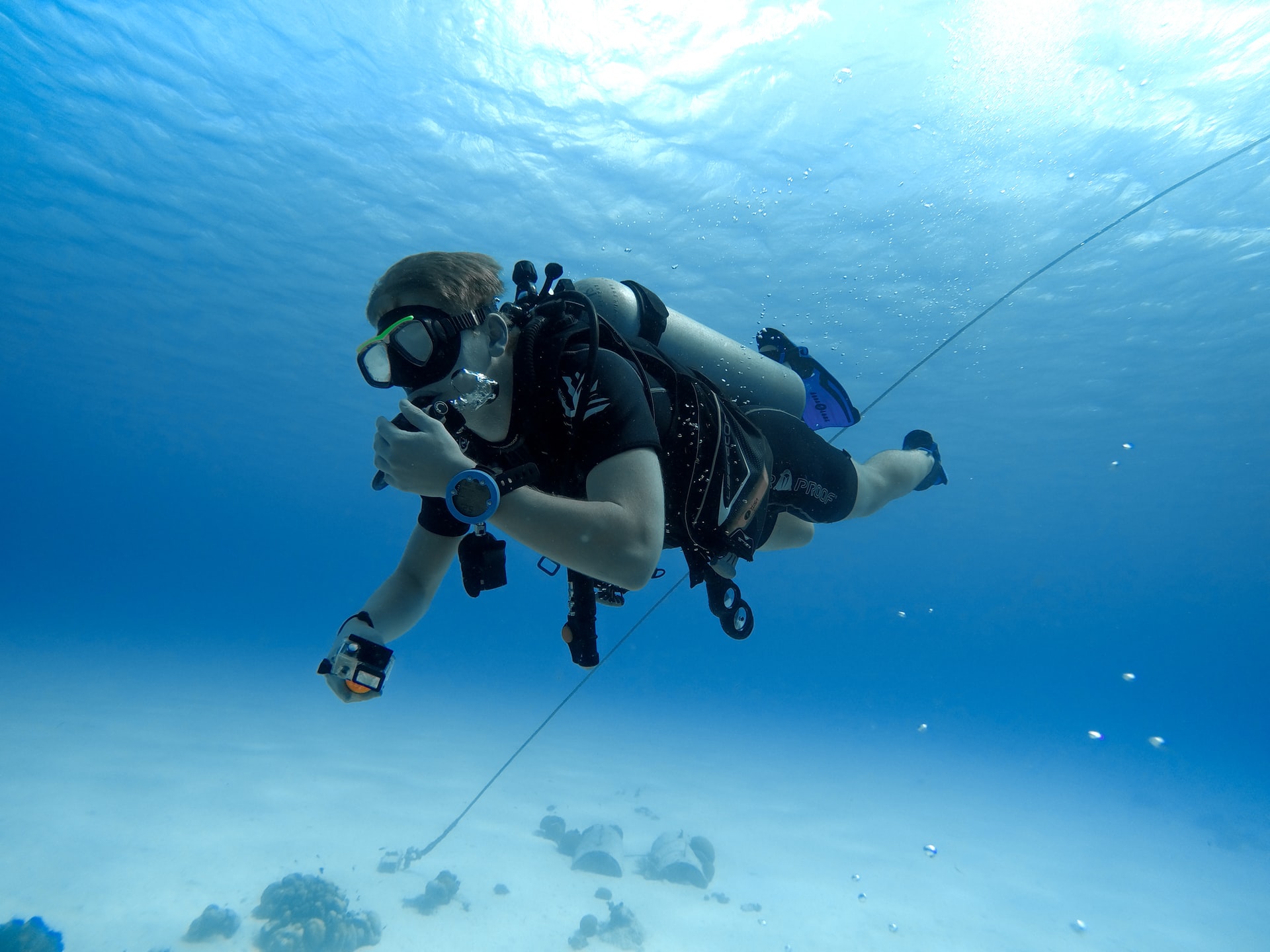
Are Scuba Divers Athletes? All the Facts (+New Competitive Forms)
-
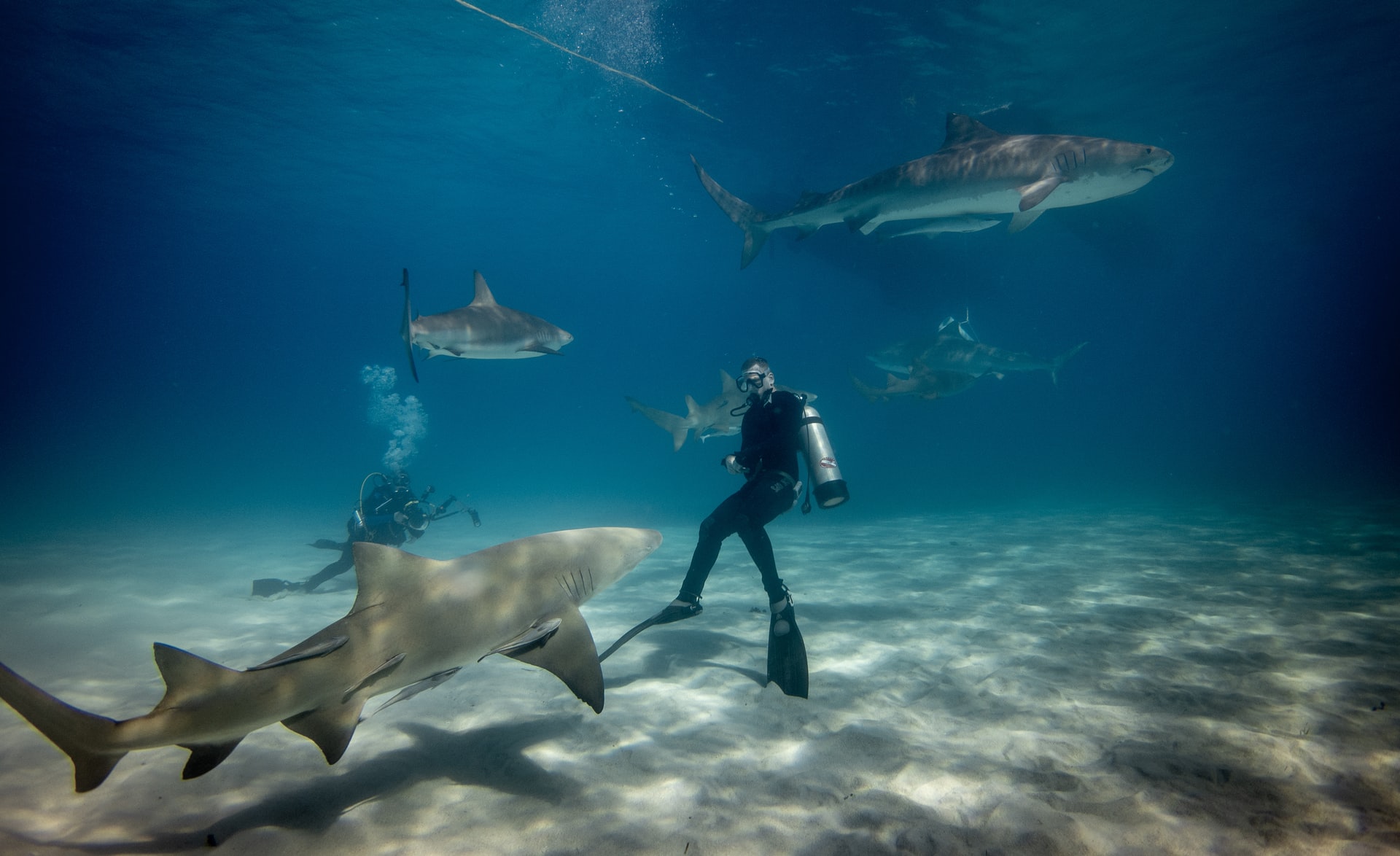
Are Sharks Scared of Scuba Divers? (What Every Diver Must Know)
-
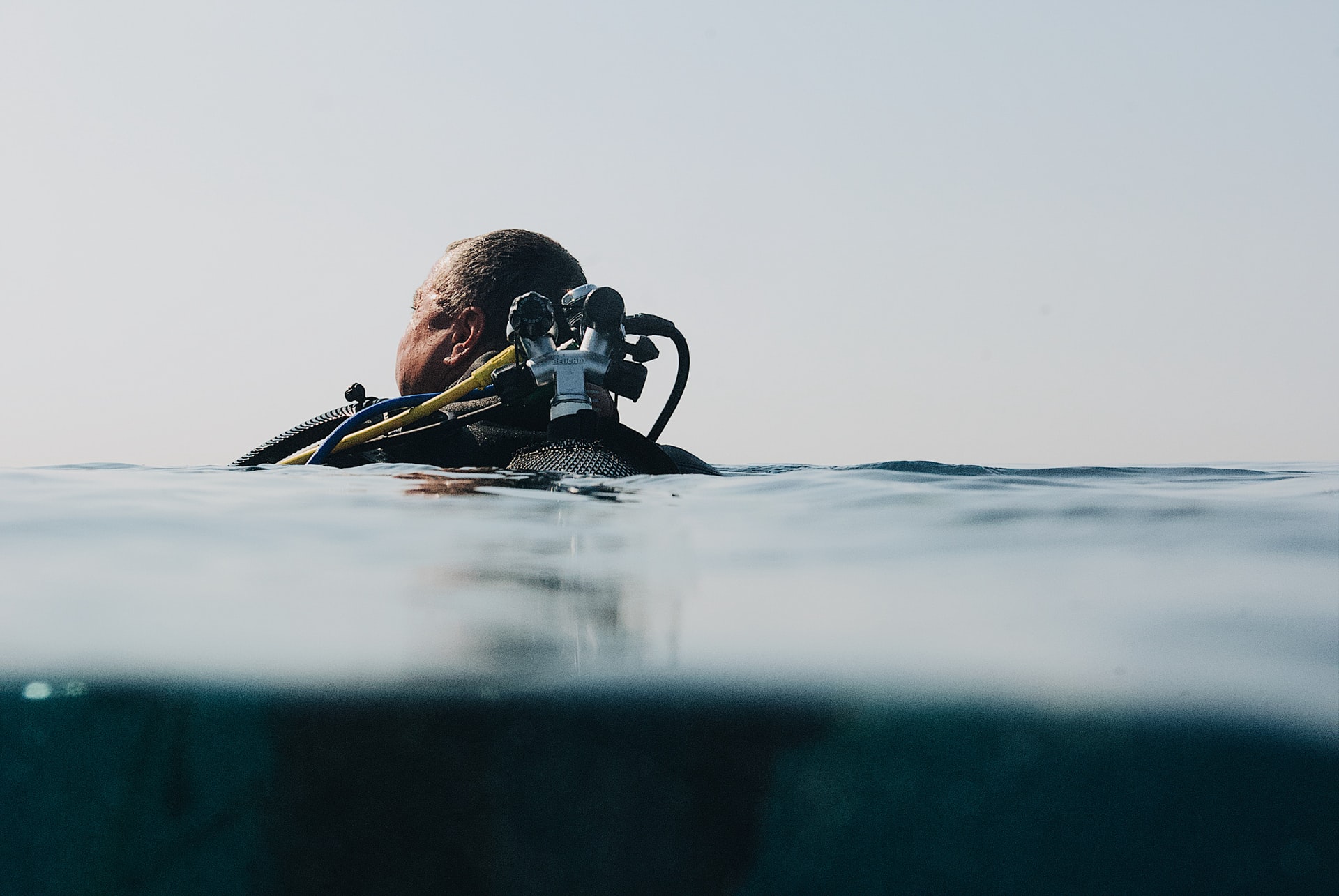
Who Should Not Scuba Dive? 17 Reasons (Every Diver Should Know)
-
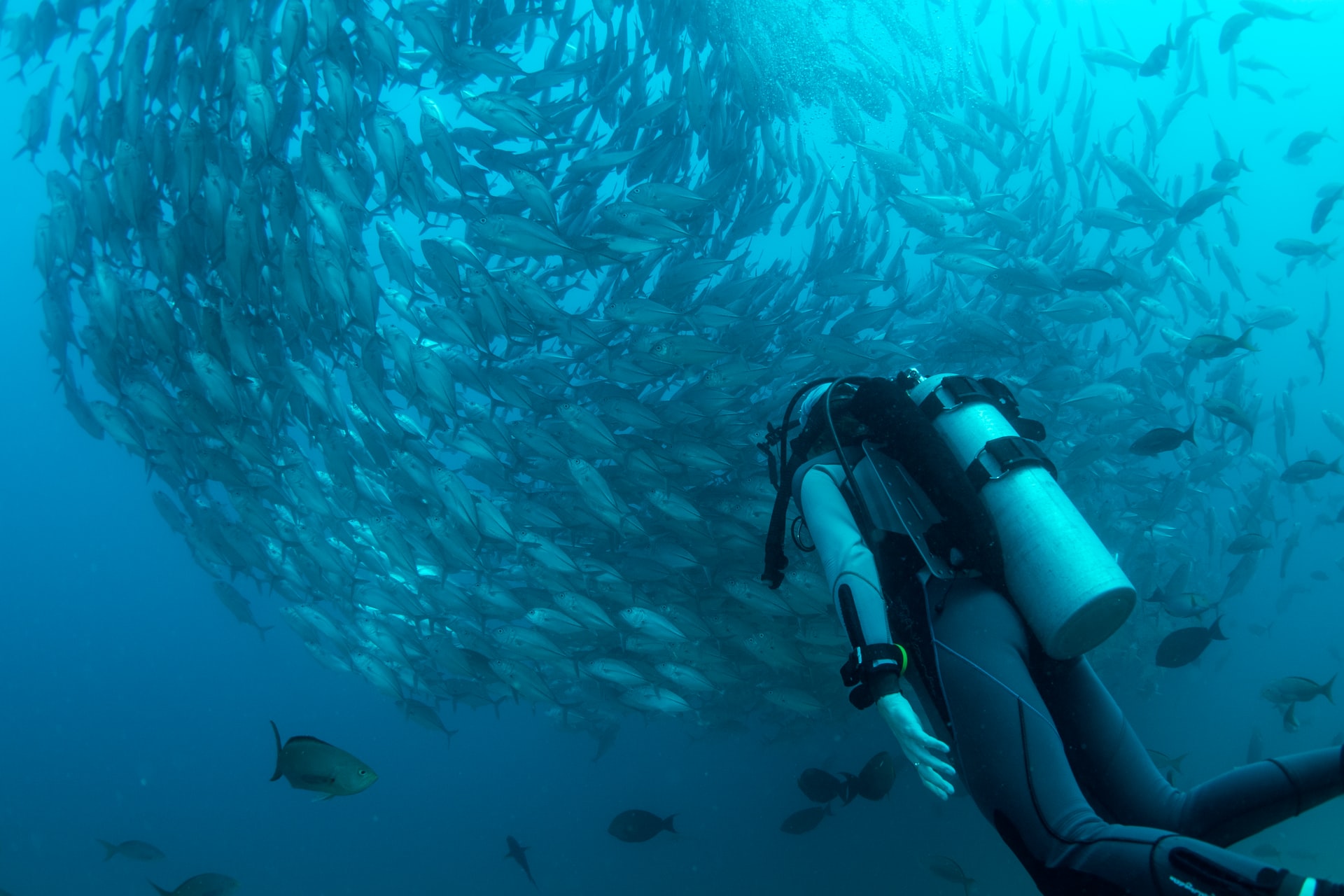
Should I Be Scared of Scuba Diving? 8 Common Fears (Debunked)
-
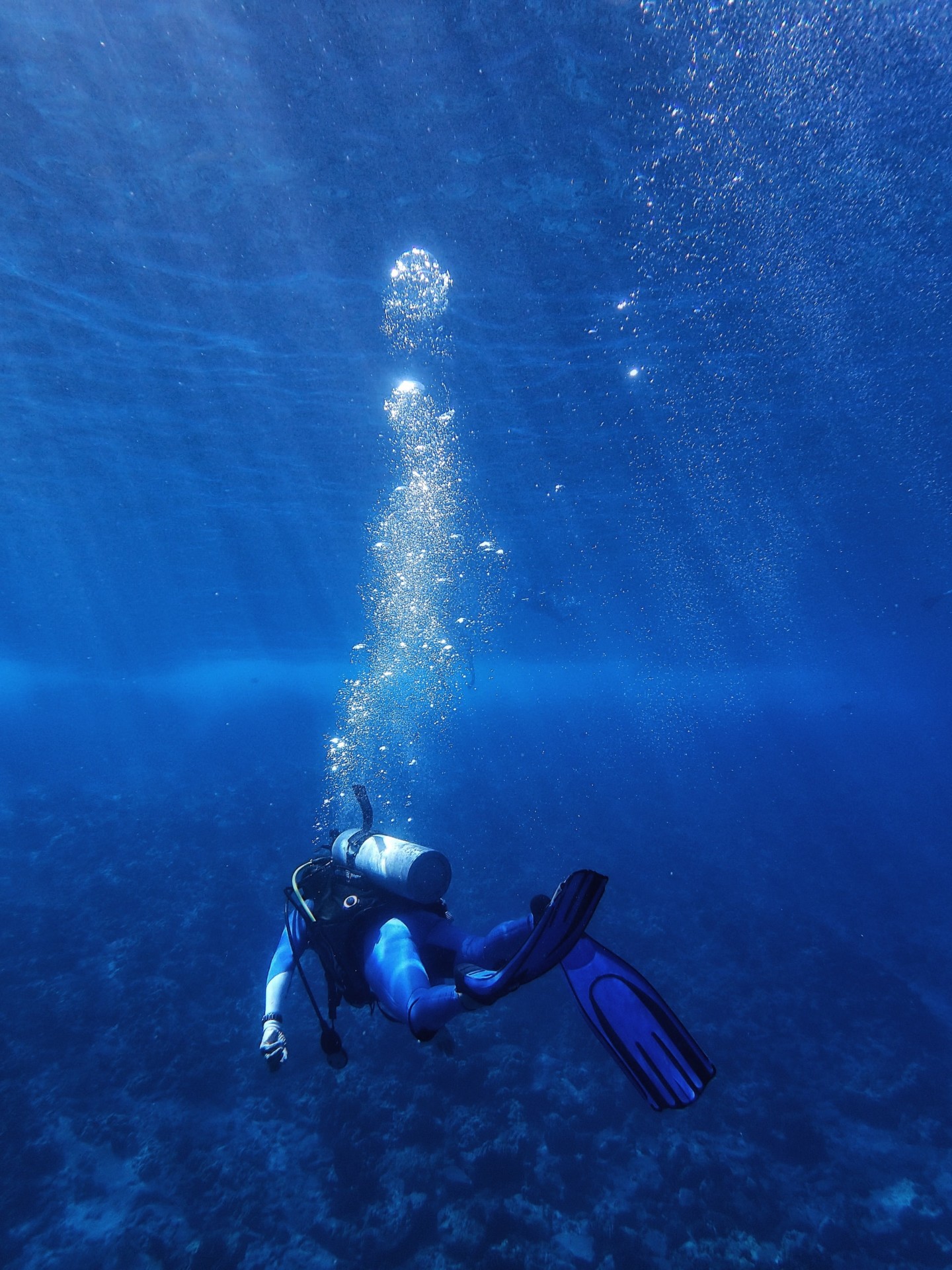
Why Do Scuba Divers Use More Air at Depth? (+4 Practical Tips)
-
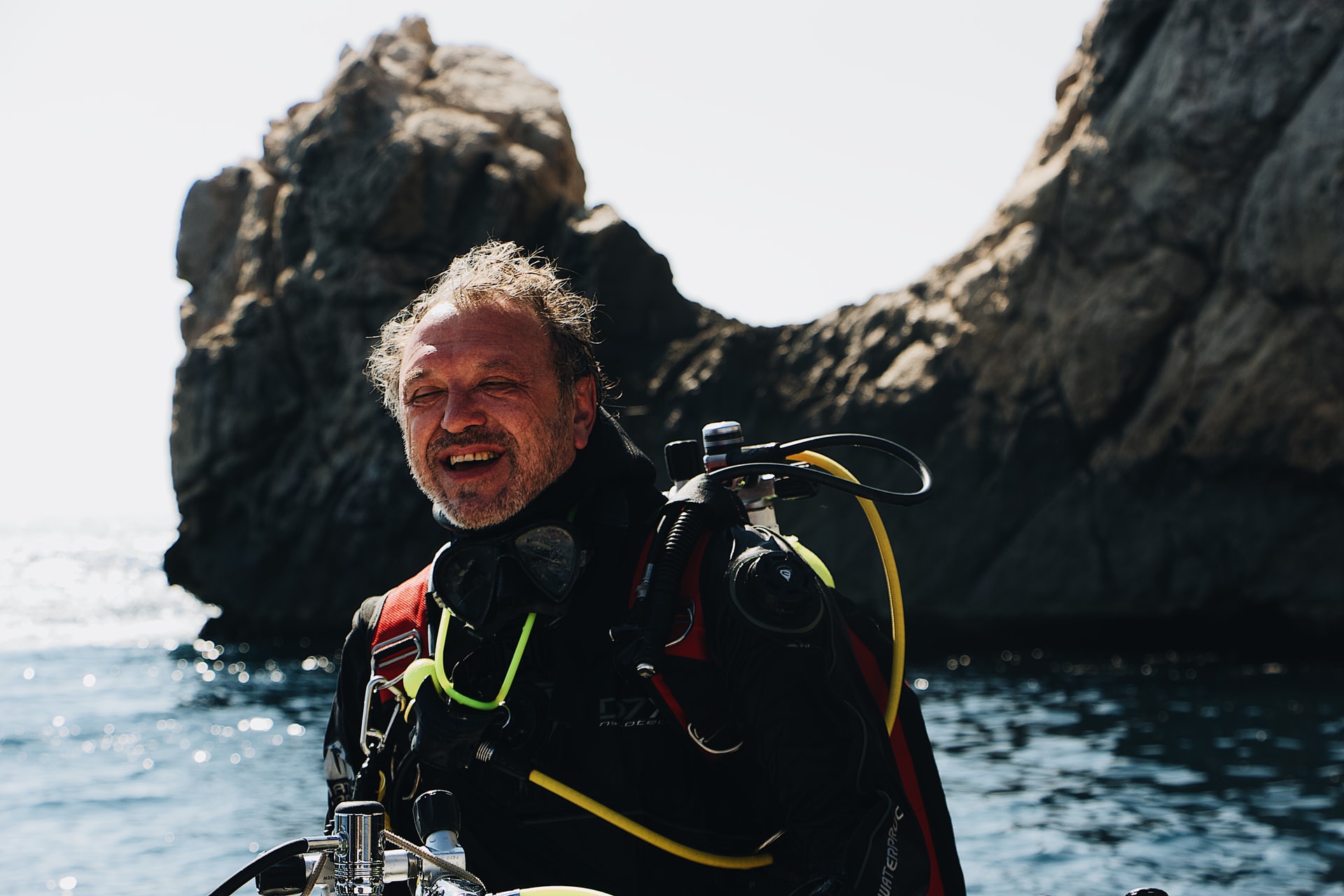
At What Age Should You Stop Scuba Diving? (+9 Tips for Older Divers)
-
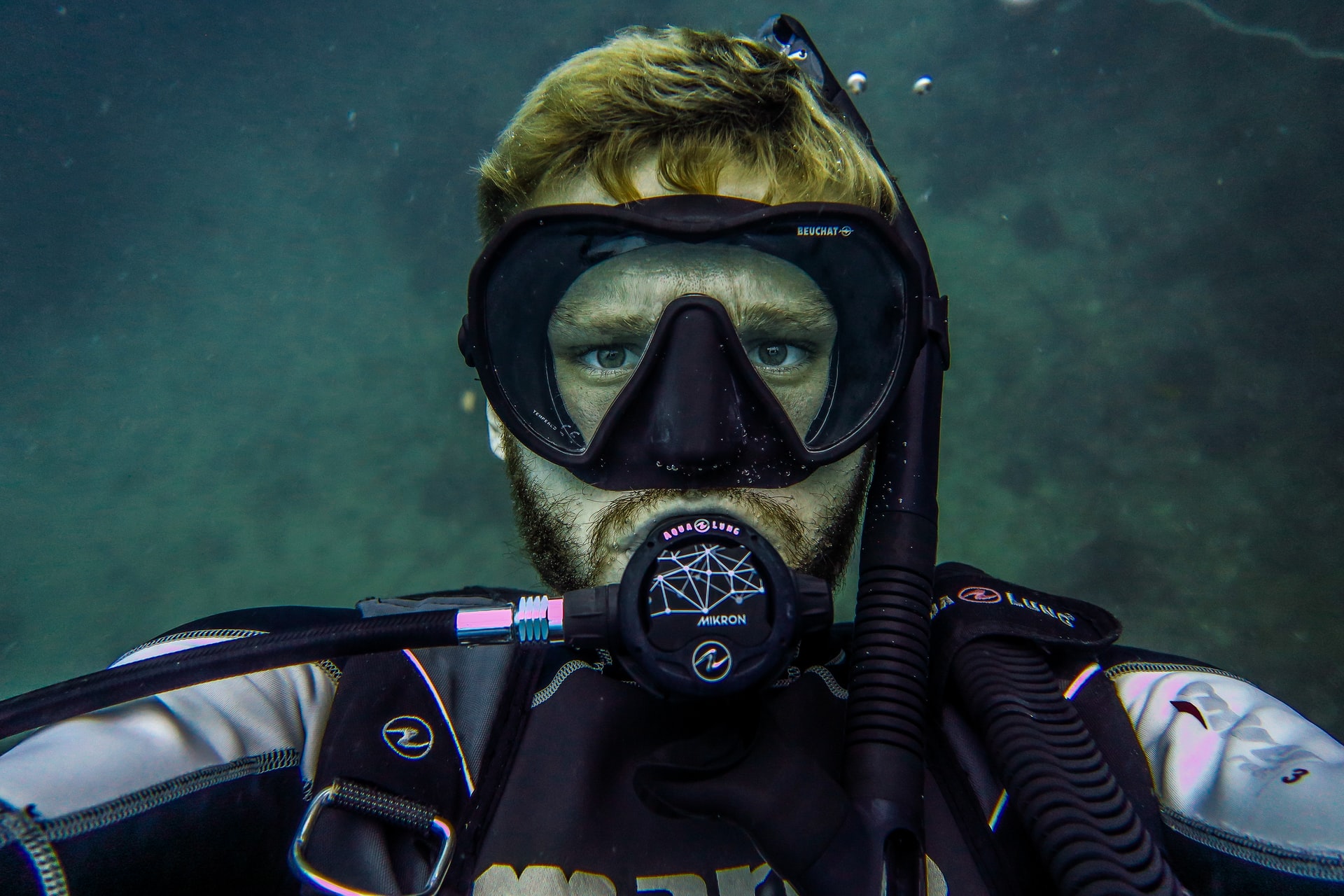
Should I Shave Before Scuba Diving? Crucial Facts (+9 Helpful Tips)
-
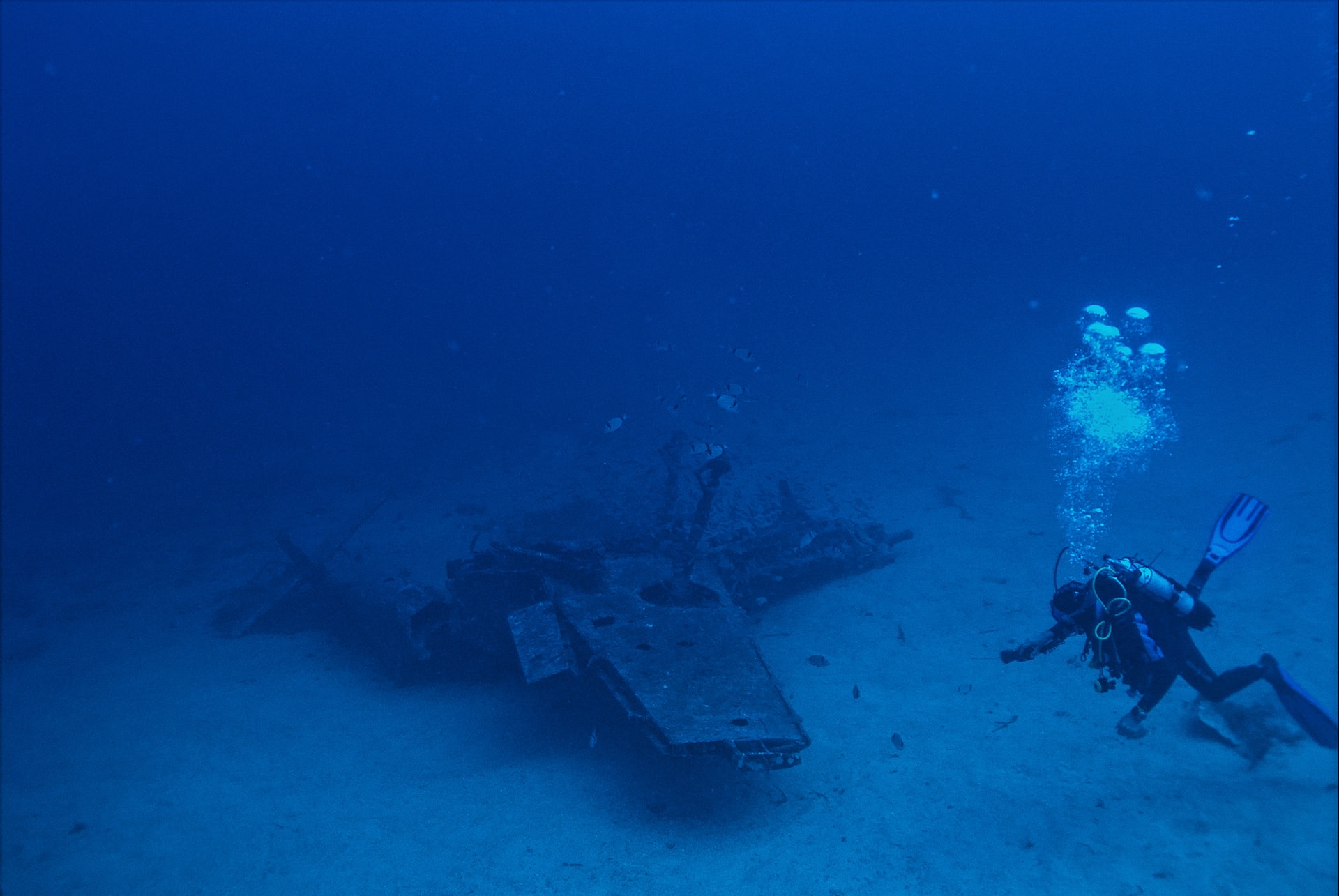
Why Do Scuba Divers Use Helium? (+Its Pros & Cons)
-
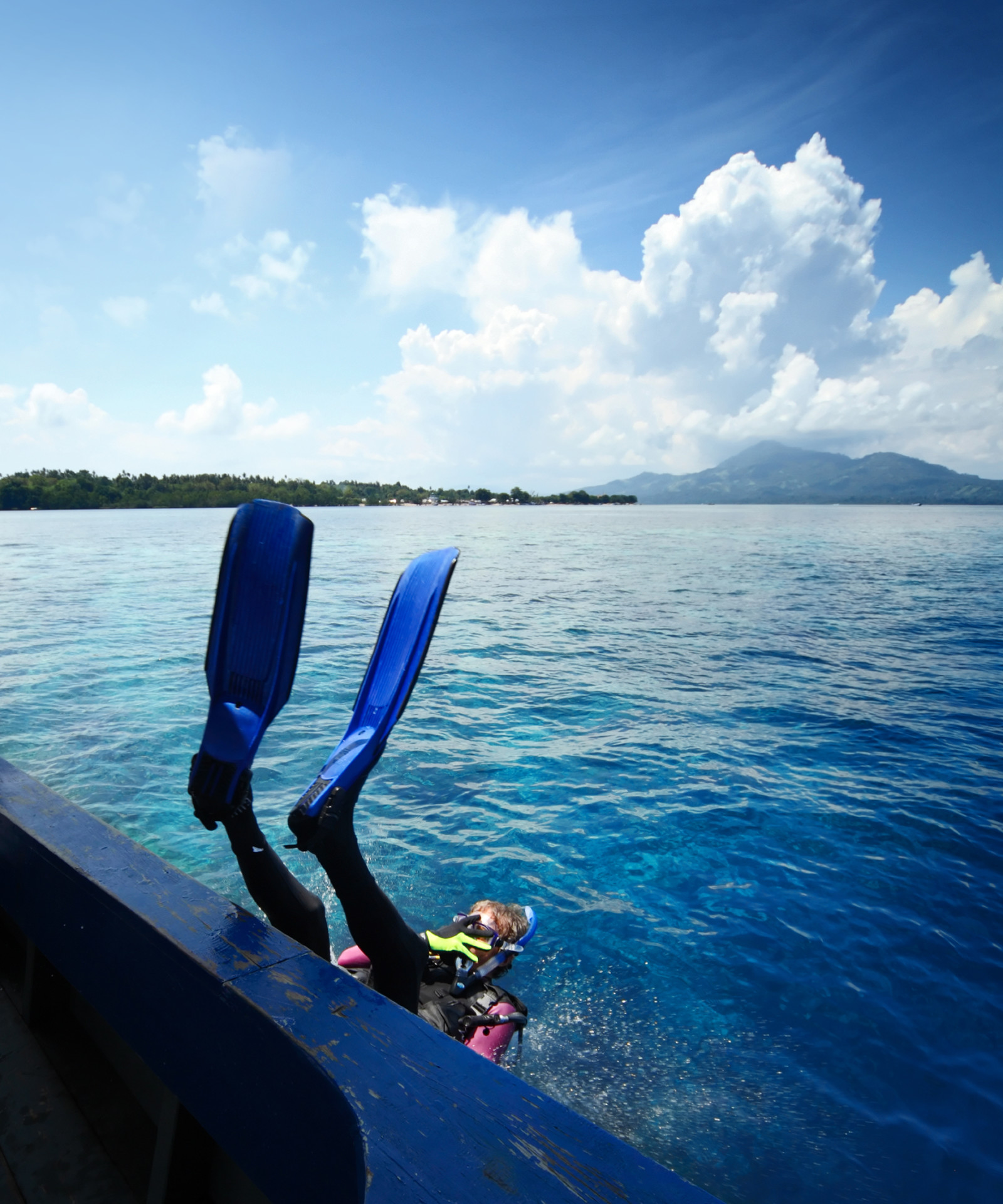
Why Do Scuba Divers Go in Backwards? (+3 Alternative Entries)
-
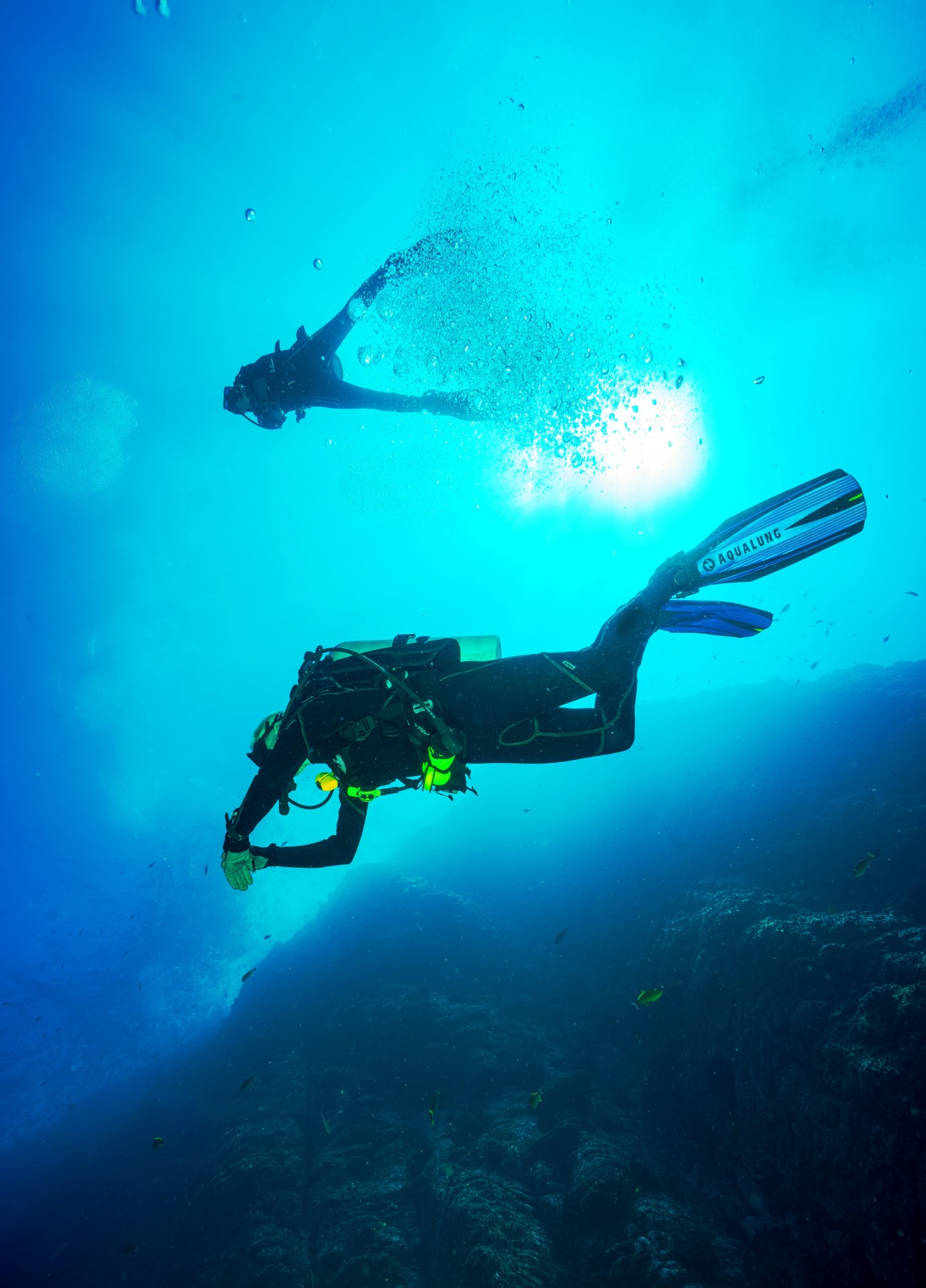
How Do Scuba Divers Sink and Float? (+Tips to Get It Right)

